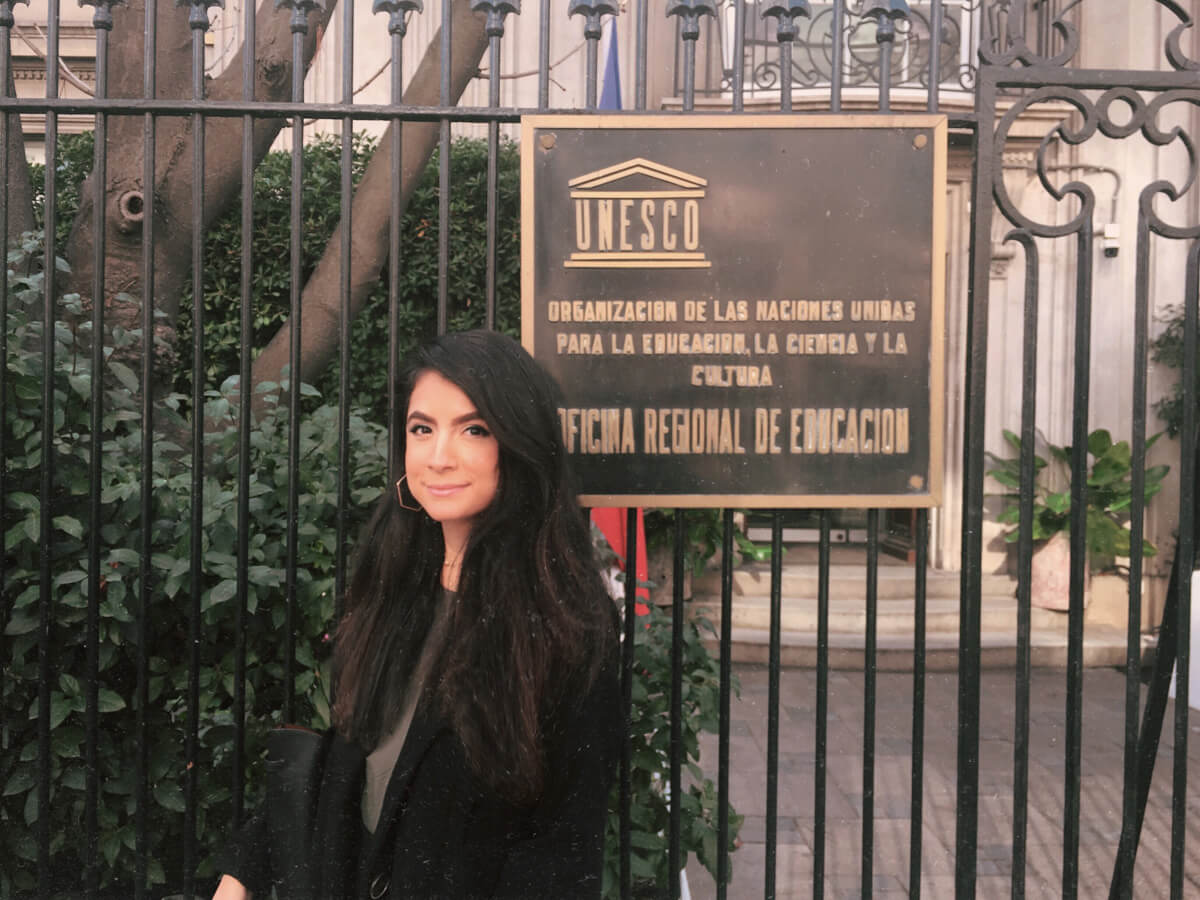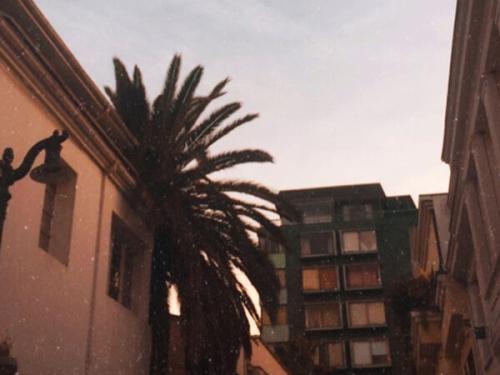(Note: Some links originally shared in 2019 are no longer active.)
Bienvenidos! ¿Qué tal? I have been in Chile for almost three months, which means my pasantía (internship) is coming to an end. Much has happened since my last post, so first I want to take the time to thank you all for reading our placement experiences of the 2019 cohort!
Since my last post, most of my work has consisted of preparing for the Regional Forum “Education beyond borders: Regional solidarity for the guarantee of the right to education for people on the move.” The event will be held during my last week at the office, which is very soon. The forum is directed to ministerial authorities, academics, international organizations, and representatives of civil society of the highest technical level in the Latin American and Caribbean (LAC) region. The regional forum is an event to reflect and discuss on the important gaps/challenges that the regional processes of human mobility have implied to their host countries, such as presented in the 2019 GEM Report and the UNHCR – IOM Regional Road Map.
The forum will also present the UNESCO Regional Strategy for People on the Move, developed by the OREALC/UNESCO Santiago office, which identifies three priority areas in LAC: (1) planning and access to education systems; (2) inclusive educational and social environments; and (3) recognition of prior education and knowledge. Based on these priority areas, components and initiatives have been prioritized for their implementation. (UNESCO, 2019).
For the past three months, I supported the activities for the launch of the UNESCO Regional Strategy for People on the Move. When I first started here, I was assigned in translating some parts of the background paper, learning along the way as I translated more about the current regional state of refugees, migrants, asylees, and returnees in Latin America and the Caribbean.
My tasks have now transitioned to event planning. It is inspiring to be part of a team that is dedicated and has put a lot of hard work to make this event be an effective step towards SDG 4.
Currently, I am assisting the Education 2030 Agenda team with logistics such as overseeing the invitation list, creating invitations in both English and Spanish, coordinating with staff, drafting/translating the event concept note, and creating the panelist/moderator guides. I will also be attending this three day high-level forum, supporting both staff and participants.
Besides assisting the regional forum, I am also working and providing technical assistance to the Regional Map of Social-emotional Education in Latin America and the Caribbean.
Melquin Ramos, a 2018 GW UNESCO Fellow, worked on this project last year — you can read more about his experience here! It is amazing seeing the GW UNESCO fellowship program come to a full circle and see past fellows’ work in action.
The purpose of the regional map is to encourage exchanges of information throughout the LAC region and map best practices in social-emotional learning (SEL). It also serves as a tool to inspire SEL practices in spaces that do not exist or need support.
The first working draft version of the map was presented at the 2019 UNESCO Forum on Education and Sustainable Development and Global Citizenship Education in Hanoi, Vietnam. I created the English version of this mapping tool as well as updated the database with any new information of the social-emotional experiences in the region. In order to control data and information gaps, I was responsible with following up with schools, local government agencies, NGOs, and Ministries of Education who participated in the open call registry of social-emotional practices. Through this process of collecting new information on SEL practices used in LAC, I have been able to practice my Portuguese when contacting our Brazilian representatives — Você já foi pro Brasil?
To conclude my final blog post, I want to reflect on my overall UNESCO fellowship experience. I have three weeks left in my placement at the OREALC/UNESCO Santiago office and it truly was a memorable experience. Learning more about the work UNESCO does and interning for this office strengthened my personal path to pursue a professional career in international development — more importantly, for me to continue to advocate for el derecho a la educación, the right to an education. I am grateful and honored for this opportunity to immerse myself in the beautiful city of Santiago and learn from my colleagues in the OREALC/UNESCO Santiago office this summer.
Thank you so much for following along my journey! ¡Adiós!
Renny is a Master’s candidate in International Education with a focus on conflict, security, and peacebuilding at the George Washington University’s Graduate School of Education and Human Development.









